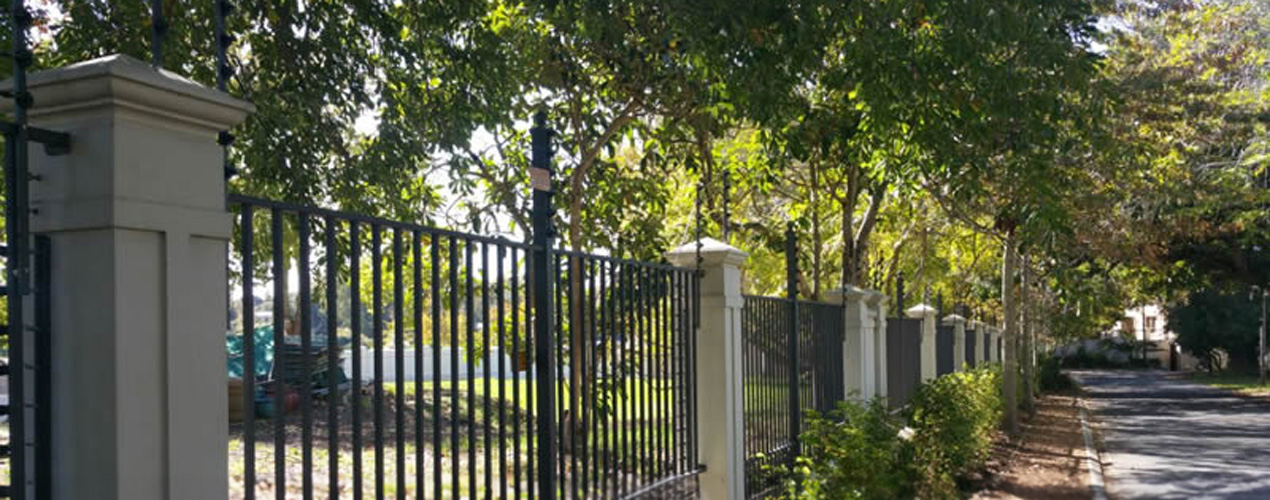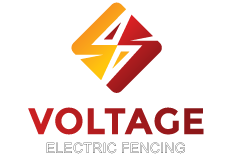Fencing Material: Safe, Secure, Superior.
Electric fencing has revolutionised the way we secure our homes and businesses. These sophisticated systems are designed to create a barrier for deterring outsiders through safe but noticeable electric shocks. But these modern, efficient, and cost-effective fences are only as good as the fencing material they are made from!
INSTALLATIONS
Comprehensive fencing installations.
REPAIRS
Professional repairs and maintenance
UPGRADES
Flawless upgrades to improve security.
Setting The Standard
Voltage Electric Fencing has built its reputation on using high-quality materials in its electric fencing installations. Our choice of premium materials is one of the core drivers of our success. Our materials offer superior conductivity and durability, requiring less maintenance — providing our clients with reliable, long-lasting security solutions.

More About Our Electric Fencing Materials
The heart of our system is the energiser, which converts power into high-voltage pulses. The electric charge is carried along the fence through other crucial materials specially designed for this purpose, such as wires, braids, and tapes. The conductors are attached to fence posts using insulators, preventing the current from being grounded prematurely. The fence posts, which may be made from various materials, support the wire and maintain it at the proper height.
A crucial component of the electric fence is the grounding or earth system, typically consisting of galvanised steel rods that are connected by a wire leading back to the energiser. Other components like reels, corner strainers, braces, and gates may also be part of the system, depending on the specific needs of the installation.
Maintenance Considerations
When it comes to electric fencing, compromising on material quality can have detrimental effects on the fence’s performance and overall security. Low-quality materials might seem like a budget-friendly choice initially, but they could ultimately cost more due to their inferior performance and durability.
One of the primary issues with subpar materials is poor conductivity. An electric fence relies on a continuous flow of electricity to deliver a potent charge. However, materials with poor conductivity can lead to weak electric pulses, thereby reducing the deterrent effect of the fence. This can encourage intruders to breach your boundaries, compromising your property’s security.
A critical component of an electric fence is the insulators, designed to prevent the electric current from grounding prematurely. Low-quality insulators may not withstand external conditions as effectively as their high-quality counterparts. They may break down faster under UV radiation, leading to a short circuit in the fence. This reduces the fence’s effectiveness and poses a risk of fire, particularly in dry conditions.
While low-quality materials might seem appealing due to their lower upfront cost, the compromise on security and the potential for increased maintenance costs make them the less desirable choice. Using lower-quality materials often results in increased maintenance requirements. These frequent repairs and replacements can be time-consuming and costly, making the money saved on initial installation overpowered by ongoing costs.
Fencing Material And Its Impact on Longevity
A robust combination of materials ensures that electric fences remain effective for many years, requiring minimal maintenance. But remember, even the best materials can’t compensate for poor installation. Therefore, correct installation from our trained team, coupled with regular maintenance checks, will ensure your electric fence stands the test of time. At Voltage Electric Fencing, we understand this and prioritise the use of high-quality materials in our installations.
Frequently Asked Questions
What materials are typically used in an electric fence?
Electric fences commonly utilise smooth steel wire, ranging from a fine thin wire used as a single line to thicker, high-tensile wire. Other essential components include electric fence energisers, posts, insulators, and grounding rods.
How do weather conditions affect the materials used in electric fencing?
Weather conditions can significantly impact the longevity and effectiveness of electric fencing materials. However, materials like galvanised steel and aluminium, are resistant to rust and weather damage, making them suitable for various climates. We also use plastic insulators designed to withstand UV radiation.
How do the costs of electric fencing materials compare to traditional fences?
While the initial cost of electric fencing materials might be higher than some traditional options, they are often more cost-effective in the long run due to their durability and lower maintenance requirements.
What maintenance is required for the materials used in electric fences?
Electric fences require regular inspections to ensure all components are working correctly. This includes checking for wear and tear on the wires, ensuring the energiser functions properly, and verifying that the grounding system is effective.


